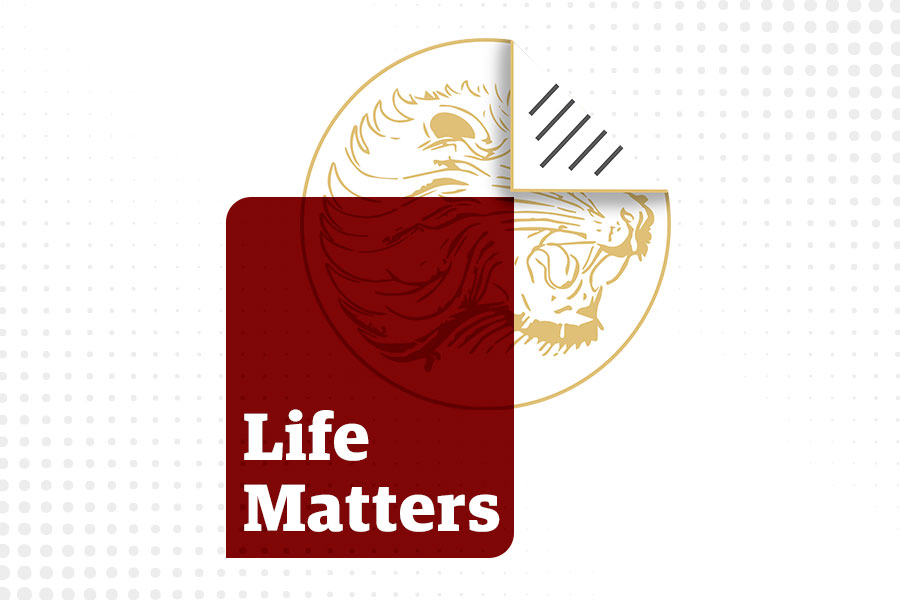
Life Matters | Apr 22,2023
France's Ambassador to Ethiopia up until last week, Remi Marechaux, arrived in Addis Abeba four years ago with a dual mandate of representing his country and engaging with the African Union (AU). He dove into familiar waters from his previous role as Director General for Africa, using Ethiopia's ancient, never-colonised status as a unique lens to understand its growth and development as well as its many problems.
Ambassador Marechaux was captivated by Ethiopia's identity, characterised by a sense of statehood and authority, even during internal conflicts. He painted a vivid picture of a country steeped in historical continuity and cultural pride, setting it apart from its African neighbours. Marechaux noted the country's pride in history, which he observed complicated international relations sometimes. According to him, Ethiopians tend to be selective about external assistance, differing from their French-speaking counterparts, where historical ties often smooth diplomatic and economic interactions.
Marechaux believes it is essential for diplomats to skillfully manage this delicate matter, balancing respect for Ethiopia's sovereignty while promoting shared interests. The Ambassador noted that France's relationship with Ethiopia was distinctly different from that of its former colonies in Africa. In French-speaking countries, historical and linguistic connections generally ease access to decision-makers, with many leaders having studied in France. However, building relationships in Ethiopia required more effort, as the ties were less familiar. This called for a more patient and educational approach, as he worked to clarify France's role and intentions in the region.
Despite arriving at a difficult time, marked by wars in the north and the aftermath of the pandemic, the Ambassador said he witnessed the resilience of the Ethiopian people.
He proudly celebrated the 125th anniversary of French-Ethiopian diplomatic relations, spotlighting numerous bilateral initiatives that brought both countries closer. From enhancing the French-Ethiopian school, Lycee Gebremariam, to reviving the Ethiopian French business club, he focused on establishing lasting institutions, including new residences and cultural projects.
In an exclusive interview with our Managing Editor, TAMRAT G. GIORGIS, Ambassador Marechaux spoke about impressive achievements, such as enhanced cultural diplomacy, projects such as repurposing the National Palace on Menelik Avenue into a museum and preserving the Lalibela churches. The Ambassador also stressed the importance of economic reforms and post-conflict initiatives, which were vital in stabilising affected areas. Throughout his tenure, Marechaux's diplomatic approach embodied patience, respect, and consistent responsiveness to the country's needs.
Fortune: Reflecting on your tenure, what were your expectations before arriving in Ethiopia, and how did the reality compare?
Amb. Remi Marechaux: My position here was unique due to my dual role with the African Union (AU). My previous assignment was director general for Africa, which allowed me to continue covering similar subjects.
Ethiopia’s historical depth and its status as a never-colonised nation were significant draws. The opportunity to work in a country known since antiquity, and to benchmark Ethiopia’s development without colonial blame, was intriguing.
Ethiopia’s identity is unique; many Ethiopians do not define themselves as African first. This historical and cultural depth has made my tenure fascinating. Despite arriving during a crisis, including the war in the north, I witnessed Ethiopia’s resilience.
Celebrating the 125th anniversary of our diplomatic relations allowed us to highlight various aspects of our partnership. We worked on numerous initiatives, including the French-Ethiopian school and transforming the Ethiopian French business club. I focused on institutions that would benefit future relations, such as new residences and cultural projects.
Q: Given your extensive experience in Africa, how did you find your stay in Ethiopia compared to other countries you served on the continent, particularly of its unique attributes?
Ethiopia stands out due to its historical continuity and cultural pride. Unlike other African countries, it has maintained a distinct identity, largely untouched by colonisation. This uniqueness is evident in its strong sense of statehood and authority, which has persisted despite internal conflicts.
However, the country's historical pride sometimes complicates its international relations. Ethiopians' sense of self-reliance means they are selective about external assistance. This contrasts with my experience in French-speaking African countries, where historical and linguistic ties often make diplomatic and economic engagements smoother. Ethiopia’s deep-rooted culture requires a nuanced approach, balancing respect for its sovereignty with promoting mutual interests.
Q: Do you find France's approach to its relationships with Ethiopia differs from that with former French colonies in Africa?
In French-speaking African countries, historical and linguistic ties often facilitate more accessible access to decision-makers. Many leaders in these countries have studied in France or have familial ties, which creates a familiarity that smoothens diplomatic interactions.
In Ethiopia, the long-standing relationship is well-rooted but not as widely known by the general public, requiring more effort to build connections.
The major difference lies in the administrative culture and the need to explain our role and intentions more thoroughly. While in French-speaking countries, the familiarity with France and its systems allows for quicker and more direct engagements, in Ethiopia, we often have to start from scratch, explaining who we are and what we represent. This difference demands a more patient and educational approach in Ethiopia.
Q: You came at a time of delicate moment, during the outbreak of COVID-19 and the subsequent civil war, which made bilateral relations and your work difficult.
The conflict impacted our work, particularly in terms of economic investments. French companies faced challenges in repatriating profits due to the unstable business environment and frequent regulatory changes. Despite these obstacles, we secured some successful investments, especially in agribusiness.
The conflict underscored the importance of resilience and adaptability. For example, the post-conflict initiatives we launched in the war-affected areas aimed to provide immediate benefits and support the peace process. These efforts included rehabilitating hospitals and improving agricultural productivity, crucial in stabilising the affected regions. However, the ongoing instability remains challenging for sustained economic growth and foreign investment.
Q: Conflicts are ongoing, mainly in the two largest regional states. What specific contributions has France made to address the multiple crises Ethiopia faces?
Our contributions are driven by the Ethiopian government’s requests. During the COVID-19 pandemic, we provided vaccines in collaboration with the Ministry of Health, appreciating their efficient distribution efforts. On the economic front, we were actively involved in the previous IMF agreement, providing grants and technical assistance to support Ethiopia’s economic reforms.
Post-conflict, we were among the first to deploy concrete projects in the war-affected areas, such as rehabilitating hospitals and improving the electrical grid. These initiatives were designed to deliver immediate benefits and support long-term stability. Our approach is always to respond to Ethiopian priorities, ensuring our assistance aligns with their needs and goals.
Q: During the conflict and its aftermath, France and other Western countries, were criticised for prioritising bilateral relationships over their value commitment to upholding human rights. Do you see these criticisms as reasonable?
Upholding human rights is a core value of French diplomacy. We candidly discussed human rights concerns with Ethiopian authorities, though we chose a respectful and private approach rather than public condemnation. This method conforms with our belief that constructive dialogue is more effective than public lecturing.
Q: Do you find it difficult to balance maintaining smooth relationships with the government and being outspoken?
It depends. You can express your thoughts candidly without public posturing. We practice what can be termed "quiet diplomacy." My President, ministers, and I communicate frankly with Ethiopian interlocutors when necessary, but we do so respectfully and privately. Public lectures are not our approach.
We believe that private discussions are more efficient and respectful. Our public statements, whether bilateral or with partners, never use forceful language like "you must." Instead, we discuss issues privately to be both effective and respectful.
Q: Were there times when you felt you had to speak out publicly against certain developments against gross human rights violations, war crimes and crimes against humanity?
Yes, there are times when public statements are necessary, especially in the face of horrific crimes. However, it is not always the most effective way to address issues on the ground. Public statements may satisfy public opinion but do not always lead to practical solutions.
During the conflict, we told Ethiopian interlocutors early on that a military solution was not viable and a political solution was needed. The Ethiopian government's decision to include a transitional justice mechanism in the Pretoria Agreement reflects an understanding that aligns with this perspective.
We supported the Ethiopian Human Rights Commission and collaborated on the joint report with the Office of the High Commissioner for Human Rights. This report acknowledged that crimes against humanity were committed during the conflict, leading to the inclusion of transitional justice in the Pretoria Agreement. We believe that promoting a culture of accountability through these mechanisms will ultimately benefit Ethiopia’s long-term stability and governance.
Q: Upon your departure, do you feel satisfied that you have done enough to uphold human rights in Ethiopia?
Yes. However, upholding human rights is not just about speaking out. We have had a productive relationship with the Ethiopian Human Rights Commission, exemplified by the joint report with the Office of the High Commissioner for Human Rights. This report acknowledged crimes against humanity and war crimes, and the Ethiopian government endorsed it, leading to the transitional justice process.
Public denunciations might not have had the same impact. The government’s acknowledgement of these crimes and the steps toward transitional justice show their commitment. However, ongoing conflicts mean that human rights issues are far from resolved, and continuous efforts are necessary.
Q: Do you see national dialogue and transitional justice process as sufficient instruments for Ethiopia's ongoing conflicts?
It depends on the outcomes. These processes have not yet delivered concrete results. We are still waiting for the national dialogue to start and for transitional justice to lead to prosecutions for the most horrific crimes.
Due to the scope of the crimes, a specific mechanism for transitional justice was necessary. We stand ready to support these efforts with expertise if requested, but the success of these initiatives remains to be seen.
Q: Why is there little talk among members of the international community about accountability for crimes committed during the wars and the ongoing conflicts?
Accountability is a key element of transitional justice, which includes prosecution and truth commission. We hope these will be implemented effectively. The Ethiopian government's decision to include transitional justice in the Pretoria Agreement was internal, indicating their commitment.
We support transitional justice as it provides a framework for dealing with the extensive crimes committed. The international community, including France, stands ready to assist, but it is ultimately up to the Ethiopian government to follow through.
Q: Do you believe France has played a constructive role in Ethiopia’s crisis management and development?
Yes. France has made meaningful contributions across various sectors. From cultural heritage projects to emergency post-conflict initiatives, our efforts have been aligned with Ethiopian priorities. We have supported economic reforms, provided humanitarian aid, and engaged in climate adaptation projects.
Our approach has always been to respect Ethiopia’s sovereignty and work collaboratively. While we could have done more in some areas, I believe our presence has been positive and impactful. We remain committed to supporting Ethiopia’s development and look forward to continued partnership.
Q: Could the fragility in Ethiopia’s state lead to spillover effects from Somalia, such as terrorism?
I do not think so. After four years here, I do not see the state as fragile. The state structure in Ethiopia is strong, and the likelihood of it collapsing is low. Cooperation between Ethiopia and Somalia is crucial in addressing terrorism. However, I do not believe the problems in Somalia will significantly affect Ethiopia in the absence of cooperation.
Q: Can you draw parallels between dealing with terrorism in Somalia and Ethiopia?
There are major differences. In Somalia, the state collapsed, and efforts have focused on rebuilding it. Ethiopia has a deeply rooted culture of statehood and authority, which makes a state collapse less likely.
Ethnic or linguistic divisions are not the root causes of conflict; political entrepreneurs often exploit existing differences for their gains. Fighting terrorism requires a combination of security, political, and economic efforts. Many join terrorist movements due to marginalisation or economic incentives, not ideological reasons.
Q: Do you consider it wise for the Ethiopian government to provoke issues over Somaliland's independence and access to the sea?
The purpose is not to provoke but to address legitimate concerns. Somaliland declared independence 32 years ago, and most of its citizens do not see themselves as part of Somalia. The question of access to the sea is legitimate, and using ports like Berbera is practical and common worldwide.
The recognition of Somaliland's independence is more complex and should involve the African Union (AU), similar to South Sudan. France supports continental institutions and unity. Any recognition would follow an African Union decision.
Q: Is there any prospect of France recognising Somaliland?
France would follow the African Union's lead on this matter. We do not want to be a force of division. As a European Union (EU) member, we want to build continental institutions and promote unity rather than division. Recognition of Somaliland would require careful consideration and a collective decision by the African Union. France supports working together to address such issues.
Q: How do you perceive China's and Russia's increasing influence in Africa? What implications does this have for France's role on the continent?
The growing economic influence of China is more of a phenomenon of the past. In recent years, China has had to renegotiate bilateral debts with many African countries, including Ethiopia, limiting their capacity to offer new loans. This shift has led African countries to seek more diversified partnerships, presenting opportunities for countries like France to step in with viable solutions.
Russia’s influence in Africa is not new. Historical ties, particularly in countries like Mali, show a long-standing relationship with the Soviet Union. However, today’s situation with entities like Vagner is different. These mercenary groups do not equate to direct Russian state influence. Instead, we see opportunistic engagements driven by financial incentives. France’s approach remains focused on building sustainable partnerships and supporting African countries' development goals.
Q: What were the key cultural initiatives during your tenure, and how did they contribute to French-Ethiopian relations?
Cultural diplomacy has been a cornerstone of our relationship. Initiatives such as transforming the National Palace into a museum and preserving the Lalibela churches were undertaken at the request of Ethiopian authorities. These projects are to build on our shared heritage and promote deeper cultural ties.
We also focused on education and knowledge exchange. The French-Ethiopian school, a unique binational institution, was an important project. By renegotiating its bilateral agreement, we opened it to more Ethiopian students from disadvantaged backgrounds. We also supported historical research and museum management, emphasising capacity building and long-term collaboration. These efforts show our commitment to cultural exchange and mutual respect.
Q: France has been one of Ethiopia’s partners advocating for exchange market liberalisation. French companies’ inability to access and transfer foreign currency was one of their frustrations in operating here. Now that it has happened, what do you foresee will be its impact?
The liberalisation is a major step that we have been advocating for. It will unlock Ethiopia’s economic potential by attracting foreign investment, which has been hindered by the inability to repatriate profits. This policy change is essential for creating a more conducive environment for businesses.
However, it will also bring challenges such as inflation and increased cost of living. The government has been preparing for these side effects and has mechanisms like the social safety net to mitigate the impact on vulnerable populations. While the timing during economic and political uncertainty is bold, promoting economic growth and stability is necessary.
Q: Considering Ethiopia's exposure to climate-related problems, what are the prospects for French-Ethiopian cooperation in this area?
The French Development Agency funded Ethiopia’s long-term low-carbon emission strategy; we are involved in renewable energy projects and water management initiatives. One notable project is the artificial reloading of groundwater in Dire Dawa, aimed at improving water availability during droughts.
Our efforts also include supporting agricultural projects that address land erosion and climate adaptation. These initiatives reflect our commitment to helping Ethiopia build resilience against climate change. Moving forward, we will continue integrating climate considerations into all our projects, ensuring they contribute to sustainable development.
Q: Do you have any regrets about unaccomplished projects or initiatives you are proud of during your tenure?
One major regret is the suspension of the geothermal project, a strategic investment with great potential for Ethiopia. [Initiated in 2017 with two billion dollars pledged finance, the project was developed by a special purpose vehicle, Tulu Moye Geothermal Operations (TMGO), whose French parent company, Tulu Moye SAS, is 90pc owned by Meridiam, a French investment firm that specialises in infrastructure schemes.]
This project was crucial for diversifying Ethiopia’s renewable energy mix and demonstrating the viability of large-scale public-private partnerships. The suspension due to security issues was a setback, and although there is still room for negotiation, I remain concerned about its future.
Despite this, I am proud of our post-conflict initiatives and their tangible benefits to the affected regions. Projects like providing improved seeds to farmers and rehabilitating regional hospitals have made a real difference. These efforts reflect our commitment to supporting Ethiopia’s recovery and development.
Q: What advice would you give to your successor about Ethiopia?
Understand and adapt to the Ethiopian administrative culture. It can be cumbersome, but it is possible to navigate it effectively with patience and persistence. Building strong relationships with regional administrations and spending time outside Addis Abeba is also crucial for understanding the country’s diverse realities.
Focusing on long-term institutional partnerships and being ready to respond to Ethiopian requests will be essential. Investing in the country’s development and cultural heritage projects will strengthen bilateral relations. Above all, my successor should be prepared to be patient, consistent, and respectful of Ethiopia’s unique identity and administrative processes.
PUBLISHED ON
Aug 04,2024 [ VOL
25 , NO
1266]

Life Matters | Apr 22,2023
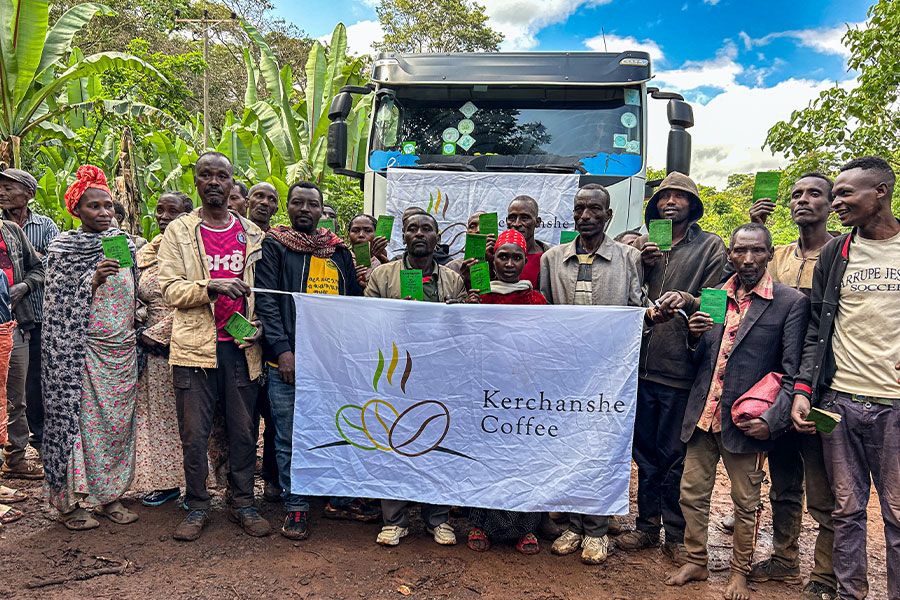
Advertorials | May 30,2025
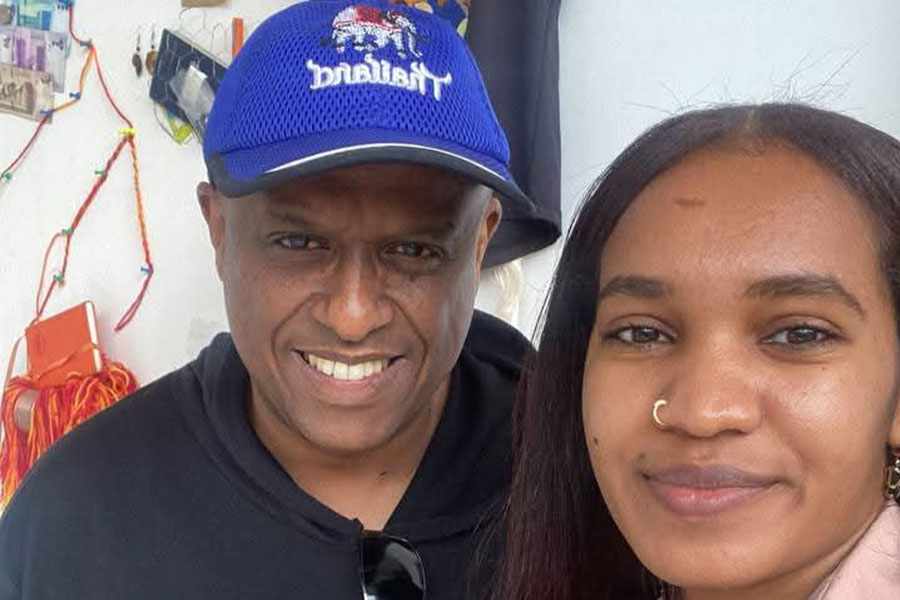
View From Arada | May 31,2025
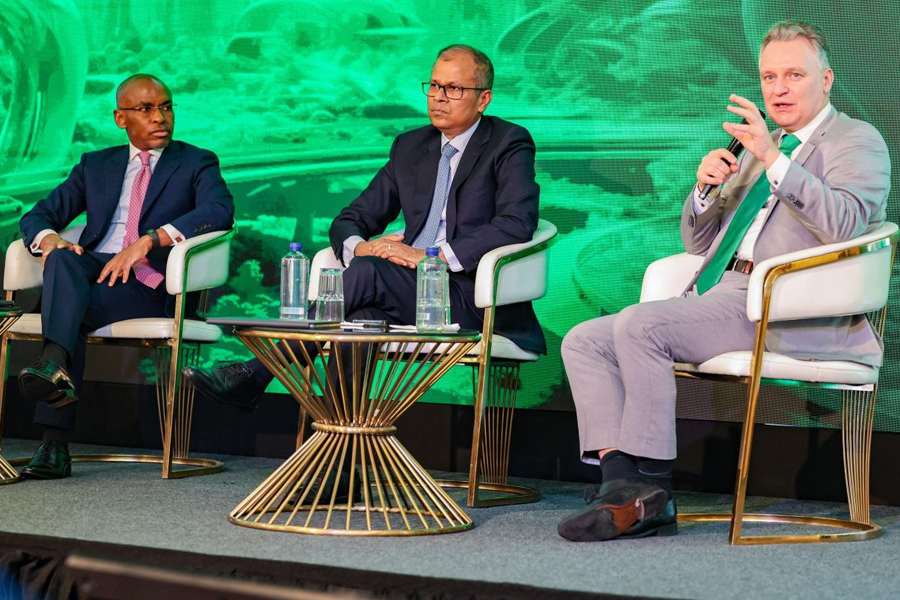
Radar | Nov 16,2024

Advertorials | Sep 05,2025
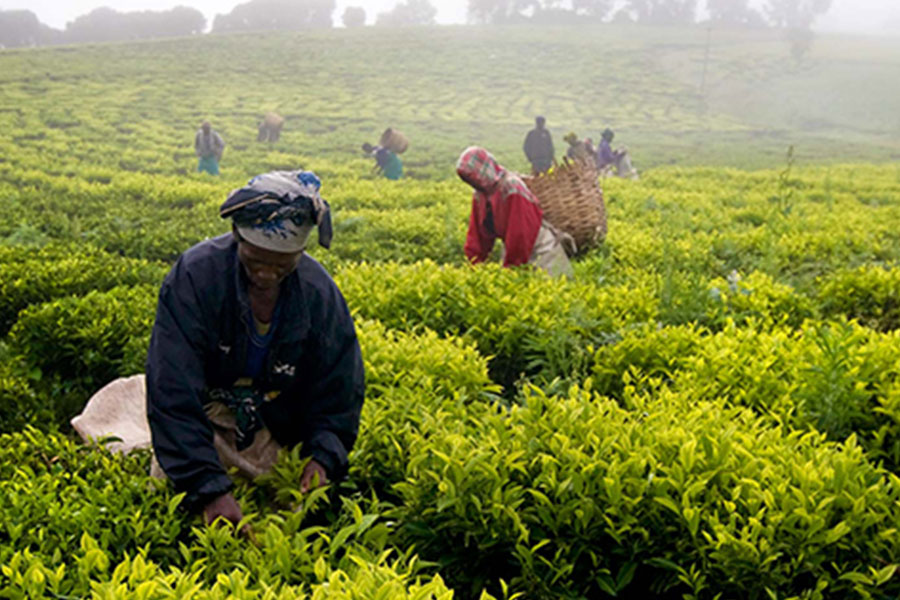
Fortune News | Aug 13,2022
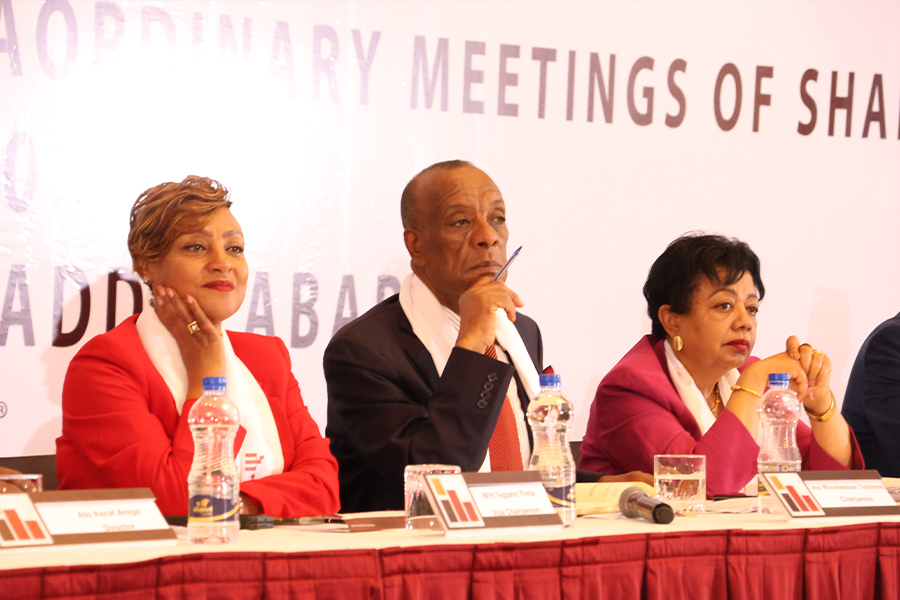
Radar | Nov 09,2024

Fortune News | Sep 29,2024

Delicate Number | Aug 16,2025

Fortune News | Jun 14,2020

Dec 22 , 2024 . By TIZITA SHEWAFERAW
Charged with transforming colossal state-owned enterprises into modern and competitiv...

Aug 18 , 2024 . By AKSAH ITALO
Although predictable Yonas Zerihun's job in the ride-hailing service is not immune to...

Jul 28 , 2024 . By TIZITA SHEWAFERAW
Unhabitual, perhaps too many, Samuel Gebreyohannes, 38, used to occasionally enjoy a couple of beers at breakfast. However, he recently swit...

Jul 13 , 2024 . By AKSAH ITALO
Investors who rely on tractors, trucks, and field vehicles for commuting, transporting commodities, and f...

Oct 25 , 2025
The regulatory machinery is on overdrive. In only two years, no fewer than 35 new pro...

Oct 18 , 2025
The political establishment, notably the ruling party and its top brass, has become p...

Oct 11 , 2025
Ladislas Farago, a roving Associated Press (AP) correspondent, arrived in Ethiopia in...

Oct 4 , 2025
Eyob Tekalegn (PhD) had been in the Governor's chair for only weeks when, on Septembe...